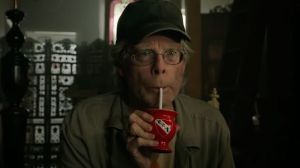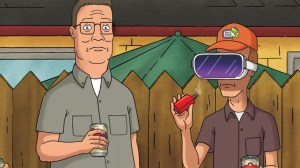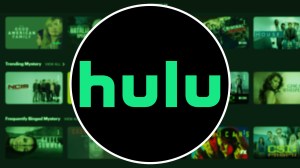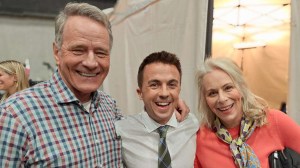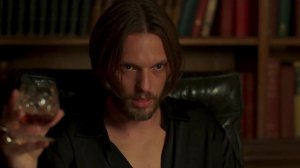Avengers: Endgame officially heads into theaters this week, presenting audiences with a whole new side of the Marvel Cinematic Universe. Plenty of fans — including those of us at ComicBook.com — are using the film’s release as an opportunity to look back on how the franchise has grown, and what films helped shape the MCU into what it is today. And in terms of laying the thematic, narrative, and technical framework for what we see in the MCU today, no film has made as massive of an impact as Captain America: The Winter Soldier.
Videos by ComicBook.com
By and large, the Phase 1 movies feel like a sort of pastiche of different genres, but Winter Soldier is arguably the first to really send up a particular type of movie. As if the casting of Robert Redford didn’t make it clear enough, the film draws narrative inspiration from the All the President’s Men-style political thrillers that began in the ’70s. As soon as Steve remarks “this isn’t freedom, this is fear,” the film unfolds like a true conspiracy story, one that asks its characters and its viewers to challenge the institutions around them. Those specific genre elements can be felt throughout, even between the big action sequences and comic book costumes, in a way that feels much clearer than the MCU films that came before it. To this day, that idea of MCU films homaging a certain film era have been increasingly common, from Ant-Man serving as a heist movie to Thor: Ragnarok being a Masters of the Universe-style space opera.
Winter Soldier also feels like one of the earliest films that wholeheartedly embraces its place in a shared cinematic universe. The reveal of Hydra infiltrating SHIELD arguably has had the most significant impact on the MCU as a whole. Sure, the Battle of New York has become a reference in Marvel’s Netflix shows and some of the latter films, but the Hydra reveal has arguably bled into and shaped even more entries in the franchise. Anyone who has regularly kept up with Agents of SHIELD is well aware of Winter Soldier‘s immediate impact, something that has also factored into Age of Ultron, Ant-Man, Captain America: Civil War, and beyond. Even the MCU entries set before Winter Soldier — Agent Carter and Captain Marvel in particular — almost take on a completely different shape, thanks to the events of Winter Soldier.
This mindset can also be seen with regards to the film’s Easter eggs, which add color to both the MCU’s past (everything involving older Peggy), the future (with the first canonical mention of Doctor Strange), and the “has yet to happen” (Bucky holding the Captain America shield). Even things that didn’t seem like Easter eggs at the time, like Fury’s “the last time I trusted someone, I lost an eye” line, are still being played with and subverted within the MCU.
Admittedly, by the time Winter Soldier rolled around, the Iron Man and Thor series were both several entries in. But it can be argued that, at the time, Winter Soldier was the strongest character study yet within the MCU, based off of how it approaches Steve as a whole. After Joss Whedon gave Steve an often-frustrating characterization in The Avengers, Winter Soldier takes a much more nuanced approach to the notion of Steve being “out of time.” It’s a dichotomy that the film deals with both in a serious way (with regards to the personal sacrifice and PTSD that Steve has endured to get to where he is today) and in more amusing ways (as he muses about the list of pop culture he has been trying to consume). The film hangs so heavily on the idea of Steve’s place in the modern world, both as the cultural symbol of Captain America and as someone who is, at the end of the day, a bit of an outsider. This allows him to be uniquely capable of pointing out the injustices carried out by SHIELD and Hydra, sticking to the morals of “not liking bullies, no matter where they came from” that he’s held since he was young. That mindset is something that has since bled into his arc in Civil War and even Avengers: Infinity War, but Winter Soldier really is the film that first showcases that Steve is willing to do whatever it takes to hold onto that belief, even if the world around him shatters in the process.
Even with the movie bringing such a profound arc for Steve, the other major characters in Winter Soldier are given some pretty strong arcs of their own. Natasha Romanoff and Nick Fury are both allowed to shine in new ways, whether through fight scenes (particularly, the solo fight sequences that they both have against Winter Soldier) or through their own personal narratives. At the same time, the supporting cast is largely given more to do than just solely prop up Steve, and one of the film’s closing sequences proves that each character is a completely different person following what just happened. This approach of subverting the expectations of a true “solo” movie felt a little revolutionary at the time, but has become a bit more common with films like Thor: Ragnarok, Black Panther, and Captain Marvel.
Beyond a narrative and thematic standpoint, it also feels worth noting the ways that action sequences are used within Winter Soldier. Throughout the film, Steve’s abilities are showcased in new and exciting ways, the vast majority of which essentially show him with his proverbial back up against the wall. Whether he’s almost-silently taking out a cavalry of soldiers on a ship, chasing Winter Soldier through an empty office building, or realizing he’s stuck in an elevator full of Hydra agents, Steve’s abilities are treated as something genuinely fantastical, while also packing a bit more of an authentic punch than seeing him and the Avengers aimlessly deal with a bunch of Chitauri. That take on fight scenes has been felt throughout the MCU ever since, both in the Russo Brothers’ later Marvel work (the fight on Titan in Infinity War comes to mind) and otherwise.
While there’s no telling exactly where the MCU is headed next following the events of Endgame, Captain America: The Winter Soldier proved how many pleasant surprises the franchise can still be capable of. With a layered approach to plot structure and characters, a unique take on fight scenes, and a genuine respect for the canon that exists around it, Winter Soldier set a new gold standard for what solo superhero movies can be, the effects of which can still be seen in the franchise today.

Welcome to Earth’s Mightiest Week! From April 22nd to April 26th, ComicBook.com is celebrating the culmination of the Marvel Cinematic Universe so far with a series of exclusive articles, lists, arguments, and more. If you’d like to check out some of our other offerings from this week, you can click the image above.


